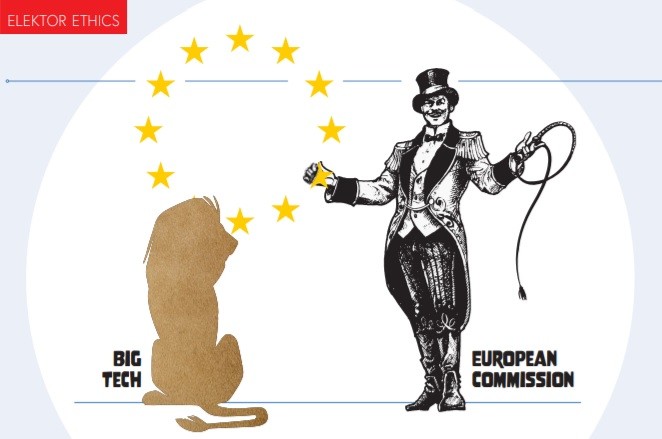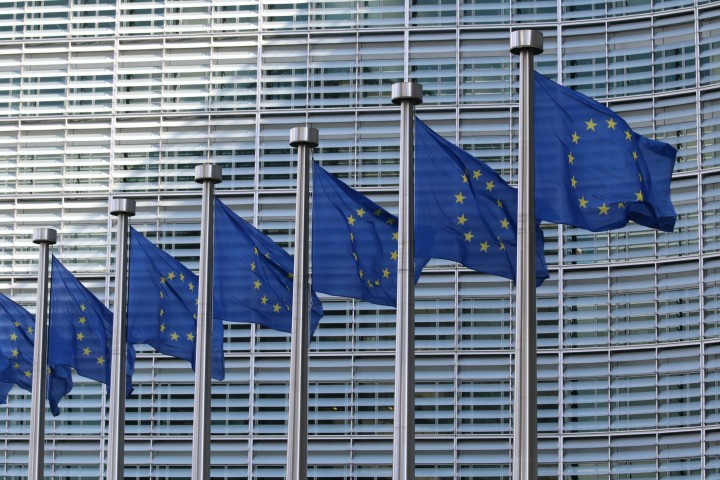Europe’s Efforts to Tame Big Tech
on
Europe wants its Internet back. It is attempting to pry power over the digital sphere out of the clutches of Big Tech companies. As part of its strategy for the EU’s digital future, the European Commission (EC) strives for a digital space based on European values — a human-centered Internet where people’s fundamental rights are respected, and a digital single market with a level playing field. To accomplish that, the EC is working on new laws to regulate the digital space. A key piece of legislation is the Digital Services Act package, which was proposed last December.

The package consists of two legislative initiatives: the Digital Services Act (DSA), which aims to protect citizens and their fundamental rights online, and the Digital Markets Act (DMA), which aims to rein in the significant power of ‘very large online platforms’ or ‘gatekeepers’. The package introduces a scaled responsibility scheme based on a company’s size. The first tier consists of small companies. They have the least responsibilities to limit their regulatory burden. The second tier is reserved for large platforms. The third tier includes the very large online platforms like Facebook and Google. They are designated as gatekeepers because they serve as an important gateway between businesses and customers. This gives them the power to set rules that disadvantage other businesses and can lead to unfair competition. That is why the proposal assigns the most responsibilities to them. A platform is considered a gatekeeper if it serves at least 10% of the EU’s population.
The Digital Service Act
One of the issues the DSA seeks to address is the spread of illegal content, such as hate speech, revenge porn and the offering of counterfeit goods. Under the proposed law, both member state authorities and citizens receive more control to alert digital service providers about such illegal content. Service providers must put user-friendly mechanisms in place that enable anyone to flag content deemed illegal. The provider must process the notification swiftly and inform the flagger about its decision on how it will handle the content. If the decision is made by an automated process, that too must be communicated to the flagger. They must also appoint a natural person within their company serving as a point of contact for member state authorities.
The inaugural World Ethical Electronics Forum (WEEF) will take place on November 18, 2021, in Munich, Germany. The program will feature informative talks about key ethical issues that are important to everyone in the global electronics community. Elektor and its partners invite engineers, makers, academics, policy makers, and executives to join us for an open discussion about eco-friendly design practices, the importance of sustainable development goals, corporate responsibility, and much more. Sign up today to participate.
It is not without risk to oblige online platforms to remove illegal content and hold them accountable if they don’t. It can incentivize a better-safe-than-sorry attitude and lead to the over-removal of content. Digital rights organizations have pointed out the danger of making private companies the de facto arbiters of what can be expressed online. It infringes on the fundamental rights of freedom of speech and right to information. To counteract overly ambitious content removal, the DSA retains two core principles laid down in the e-Commerce Directive, the legal framework that has governed the European internet since 2000. These core principles are the Limited Liability Regime and the Prohibition of a General Monitoring Obligation. The former states that platforms can’t be held liable for user-generated content unless they have ‘actual knowledge’ that the content is illegal. The latter states that platforms can’t be compelled to perform a blanket monitoring of their systems in order to identify illegal content.
The DSA introduces more safeguards to protect users against unwarranted content removal or being kicked off a platform without proper cause. Service providers must inform users about removals and provide the reason why. Large platforms must provide an internal complaint-handling procedure so users can contest the decision (small businesses are exempted from this obligation). Large platforms must also arrange for dispute resolution mechanisms overseen by an independent body. The DSA seeks to shift the power balance between platforms and society more towards the latter by introducing transparency rules. Currently, many platforms collect a lot of data about their users, while users know very little about how platforms operate. Under the DSA, large platforms must become more open about targeted advertising. Users must be notified which company or person is directing the ad at them and why the ad is targeted at them. Large platforms must also become more open about their recommendation systems. They must clearly explain to users the main parameters they use for recommending content. Users also get the right to alter those parameters or completely opt-out of the recommendation system.
Big Tech and the Digital Markets Act
The DMA applies specifically to gatekeepers and aims to create a level playing field in the digital market. To that end, the DMA proposes that very big online platforms cannot favor their own products over that of competitors (e.g., Google listing its own services at the top of its search engine results). Data of businesses will be better protected: businesses must be allowed to access the data they have generated on the gatekeeper’s platform. They must also be allowed to take their data out of the ecosystem to host it elsewhere. The gatekeeper is not allowed to use that data to compete with the business. The gatekeeper is also no longer allowed to impose its intermediary status: when consumers and businesses want to link up outside the platform, the gatekeeper may no longer prevent it.

In its fight for power with Big Tech, the EC is bringing out the big guns. Penalties for breaking the law can be severe. Gatekeepers that don’t comply with the DSA can be fined up to 6% of their annual turn-over. In case of continued non-compliance, they can be forced to temporary suspend all activities on the European networks. The fines for breaking the DMA are even higher at 10% of annual turn-over. Continued rogue behavior can be penalized with a mandatory breakup of the company.
The Digital Services Act package is currently going through the EU’s legislative process. The EC, European Parliament and the Member States all must agree on the final text before it is adopted.
Note: This article about Europe's approach to big tech first appeared in Elektor July/August 2021.



Discussion (0 comments)